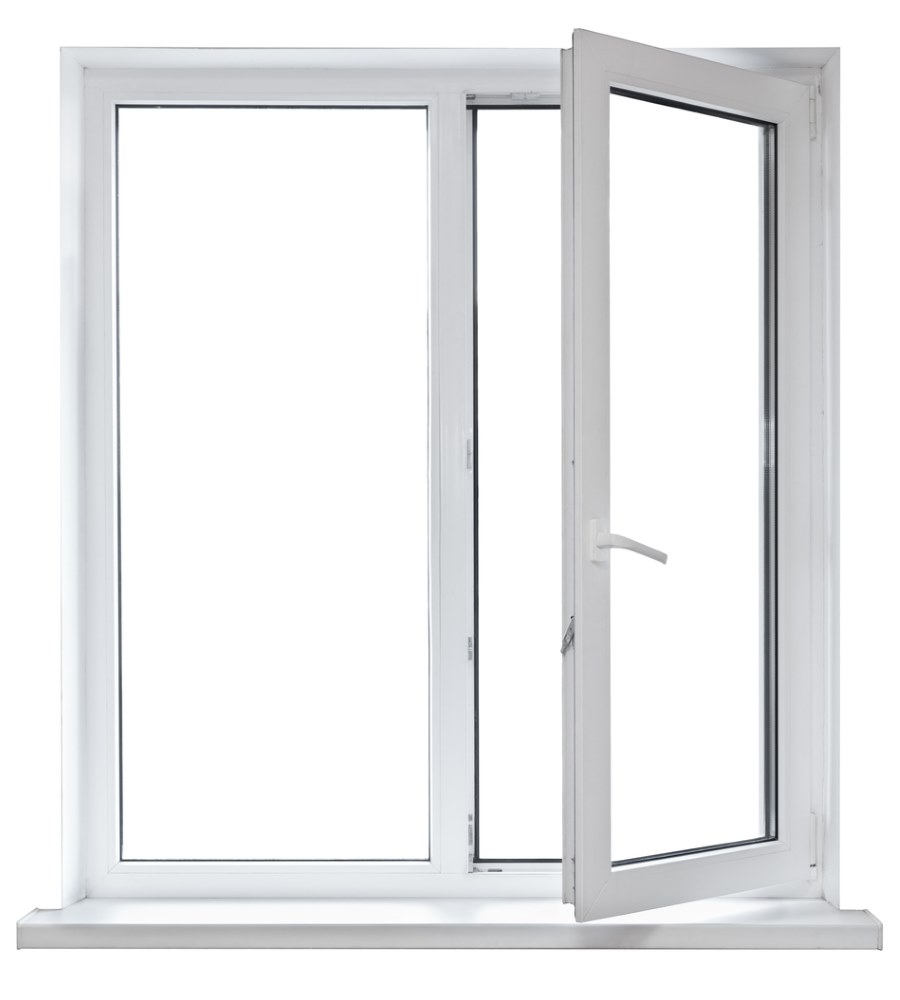Casement windows are available in a number of different materials. Picking the right one comes down to aesthetics, durability, on-going maintenance and cost.
Metal frames

Including: aluminium and steel
The most popular contemporary metal frames are made from aluminium and sometimes steel, though most homeowners with older steel frames replace them with aluminium frames. Aluminium offers the same metal aesthetic as steel, with the same benefits at a lower price.
Iron is not commonly used, however, it can be made bespoke for period properties at a considerable price.
Best for:
- Homeowners who want a better aesthetic than uPVC can offer.
- Those who are prepared to spend a little extra.
- Those who want maintenance-free, durable frames and the very best engineering.
- Those who want windows that can add value to the property.
Benefits of aluminium and steel:
- The aesthetic finish tends to be much more appealing. Metal can look sophisticated in both contemporary and period properties, unlike uPVC.
- Have a life expectancy of approximately 45 years.
- Great thermal efficiency on higher quality aluminium windows.
- Low maintenance.
Steel vs aluminium: the main differences
- Cost – steel is considerably more expensive than aluminium.
- Thermal efficiency – modern steel windows will meet current requirements, but aluminium frames offer a wider range of thermal efficiency options available in A++ grades.
- Rust – modern steel frames will come with rust protection, but aluminium doesn’t rust, meaning there is no risk involved.
- Weight – steel is a lot heavier than aluminium. The aluminium frames Origin use are 67% lighter than standard steel frames.
- Aesthetics and style – the finish of aluminium looks just as good as steel, meaning both can fit contemporary styles or the style of older period properties (such as traditional Tudor styles from the 1930s).
| Aluminium | Steel |
|---|---|---|
Cost | Less expensive than steel | The most expensive frame on the market |
Thermal efficiency | A++ rated windows available | Meets minimum standards |
Rust | Does not rust | Will have some level of rust protection |
Weight | 67% lighter than steel | The heaviest option for window frames |
Strength | Very strong | Stronger than aluminium |
Sightlines | Can achieve narrower sightlines than most alternatives | Can achieve very narrow sightlines |
Security | Can exceed minimum requirements | Meets minimum requirements |
Glazing options | Double and triple glazing available | Double glazing available |
Colour choice | Available in over 150 RAL colours | Available in a range of different colours |
Powdercoating | Available | Available |
High-quality aluminium easily rivals steel
Steel outperforms aluminium in certain areas, but only if you install low-quality aluminium.
Steel is stronger than aluminium, but the high-quality aluminium Origin offer is exceptionally strong – more than strong enough for a window frame. The problem with steel is that it’s a lot heavier – so you get more strength, but a lot of it isn’t needed – and that much heavier load makes the windows harder to operate.
This is why aluminium is often favoured; though it is technically less strong, it is arguably a more suitable material for the function of a window frame.
Aluminium is also available in a wide range of sophisticated finishes so homeowners no longer have to pick steel to achieve their desired style. With the right finish, aluminium can look exactly like steel.
Find out more about the benefits of aluminium for windows here.
Timber frames

Best for:
- Those who want a better aesthetic than uPVC.
- Those who don’t mind a bit more upkeep.
- Homeowners who want windows that will last for decades.
Timber is cheaper than metal options and has a reasonable lifespan, though needs much more maintenance. Timber is a natural insulator, meaning timber frames will offer good insulation when combined with double glazing. Softwoods like timber can bleed resin. Removing this resin can sometimes compromise the finish of the windows, which may need re-applying. Most modern timber frames are finished to the point where the paint shouldn’t crack. However, if it does, it needs to be treated immediately as a crack can expose the frame to moisture, which can lead to rotting.
The hardware will also need lubricating every so often and should be cleaned with specialist cleaning products, unlike aluminium, which only requires soapy water.
uPVC frames

Best for:
- Saving on costs.
- Those who are less concerned about customisation and finish.
- Homeowners looking for reasonably low-maintenance windows.
- Homeowners who don’t need the windows to last longer than 20 – 25 years.
Though uPVC windows are reasonably low-maintenance, it’s not always true to say that they are maintenance-free. uPVC windows are susceptible to discoloration and staining and, once discoloured, are very difficult to clean. You can’t really restore a uPVC window to its original finish once it has been compromised. uPVC windows are also much more likely to warp in shape than aluminium, and once warped will need replacing.
Generally, uPVC windows have a shorter lifespan than other frames. They normally need replacing after 25 years. uPVC are the cheapest kind of window frame available, however, and are reasonably good insulators.











